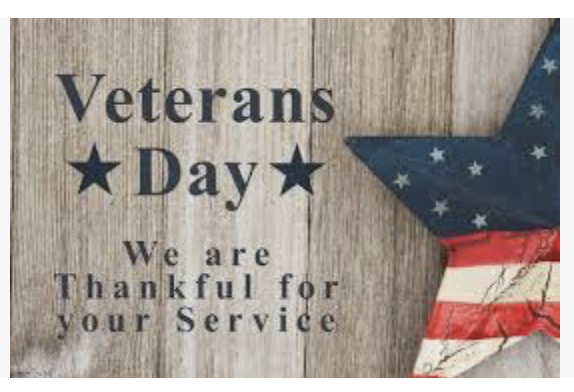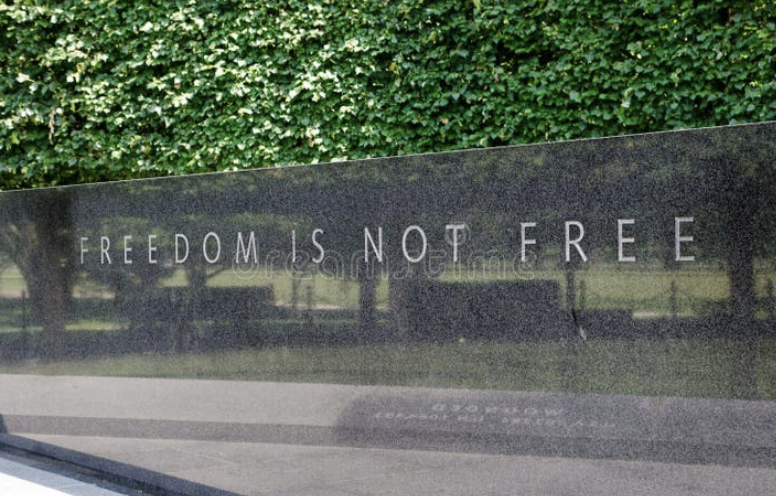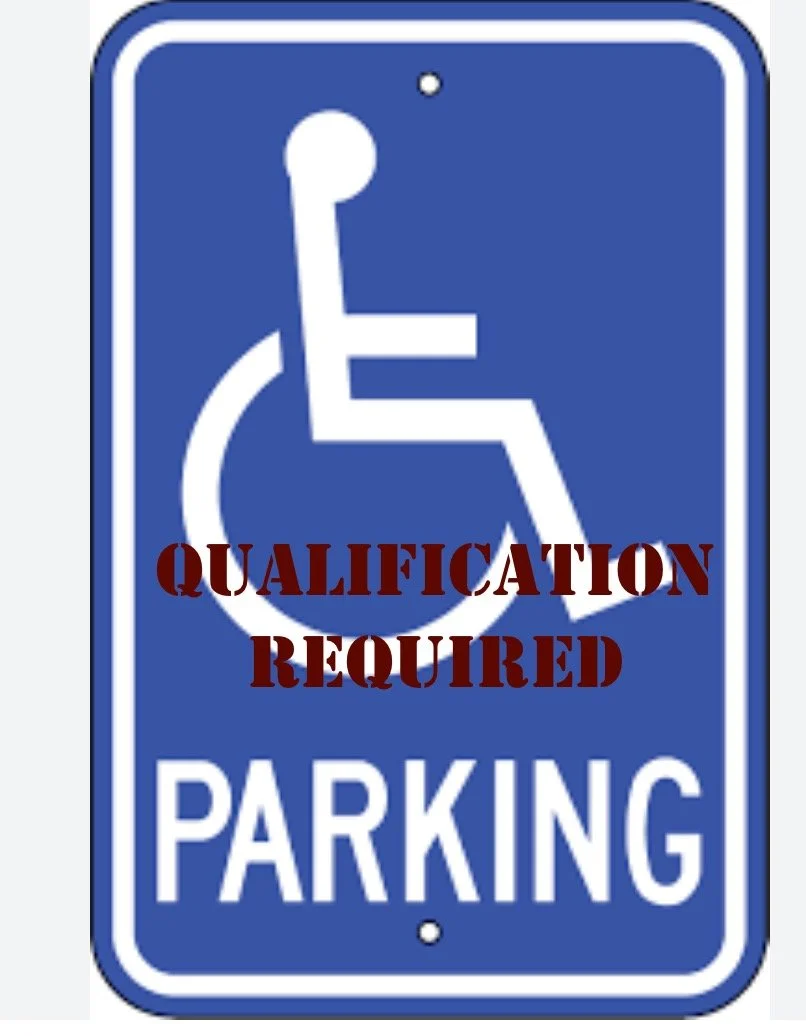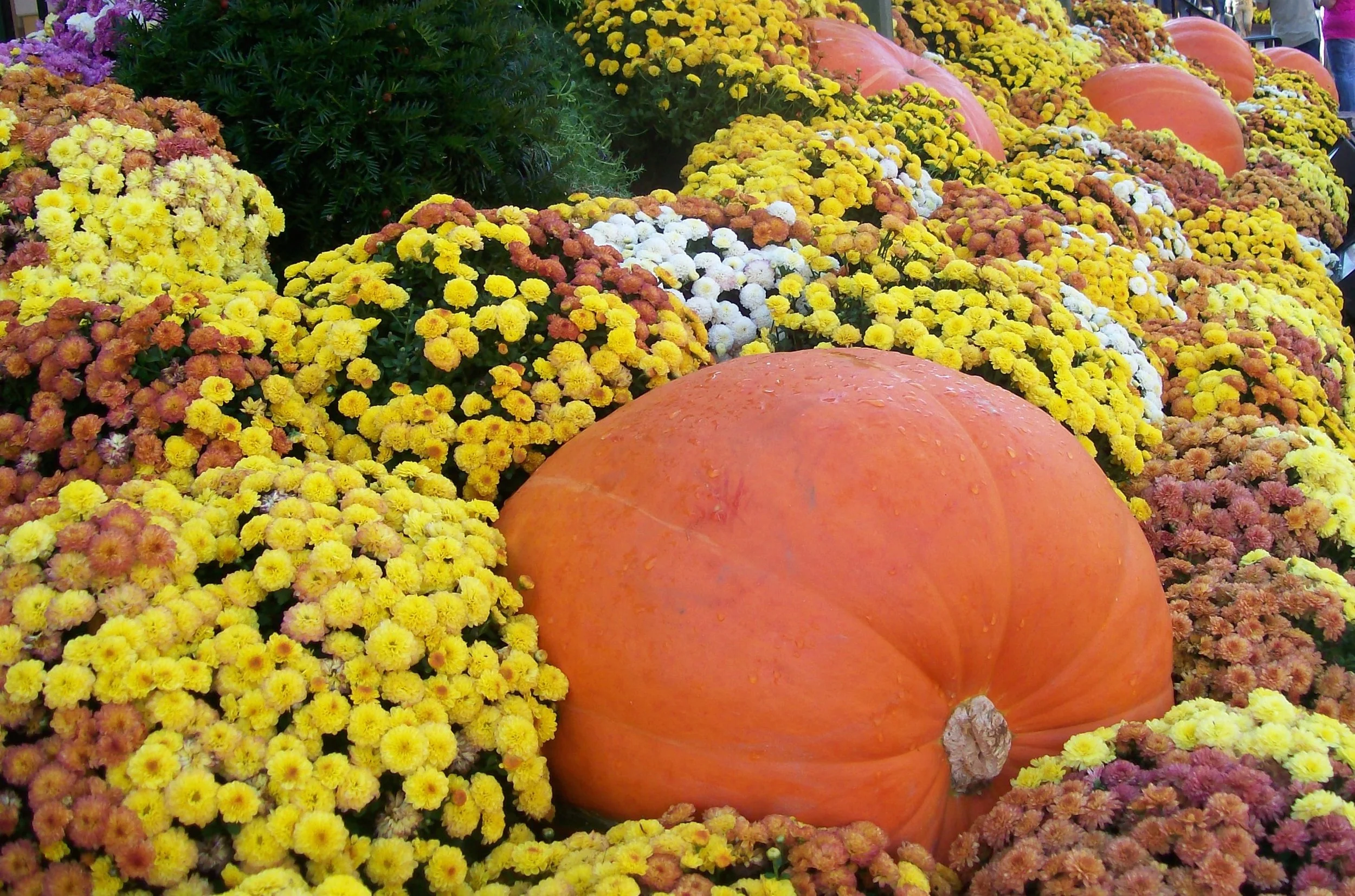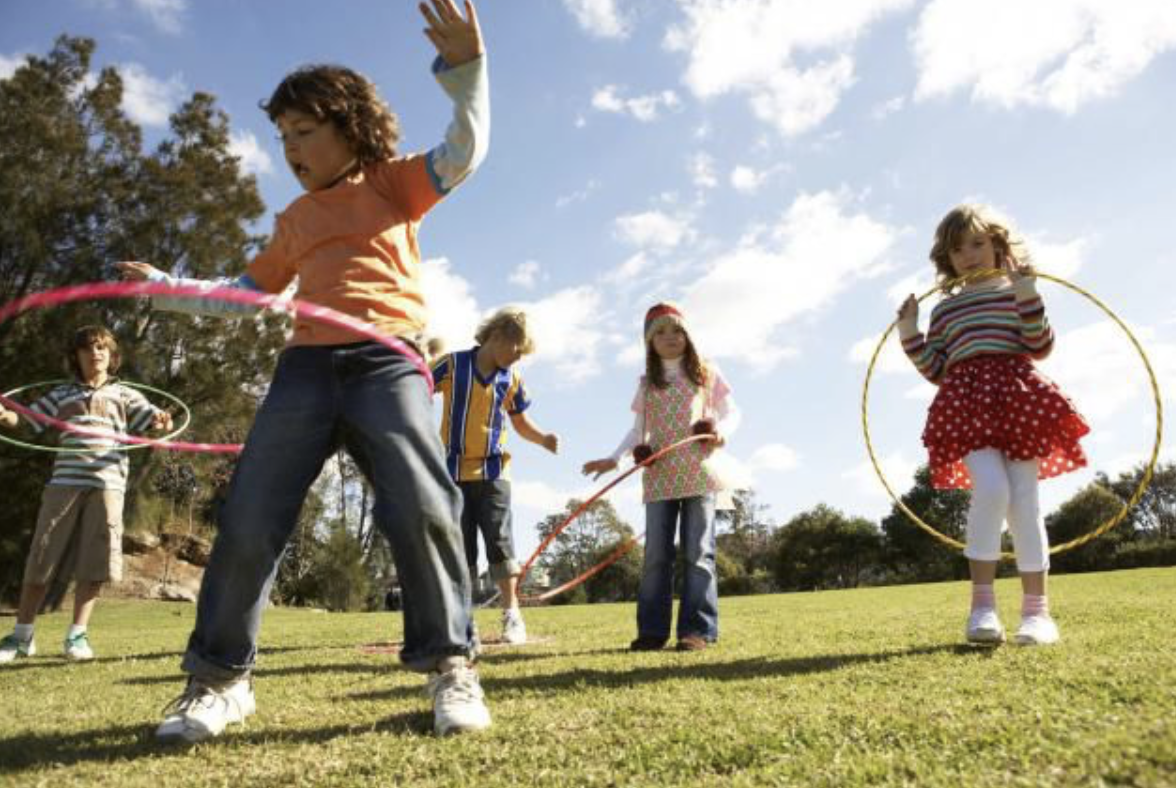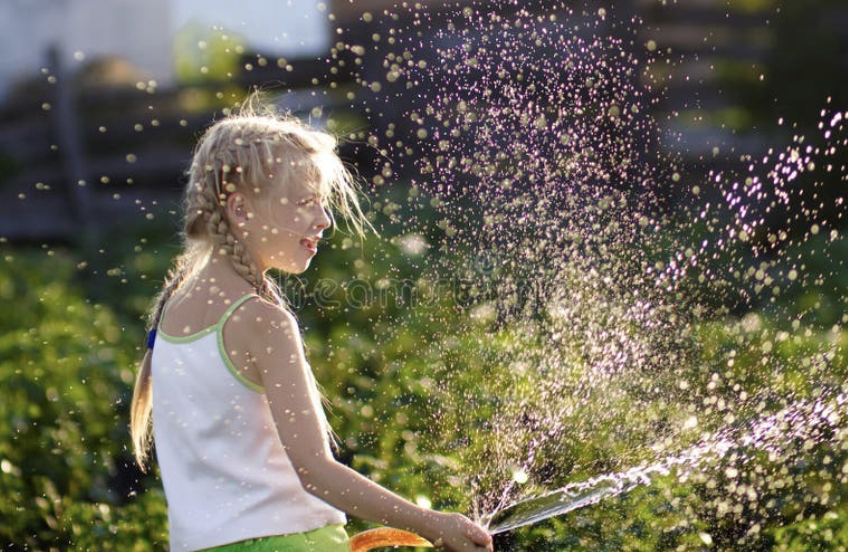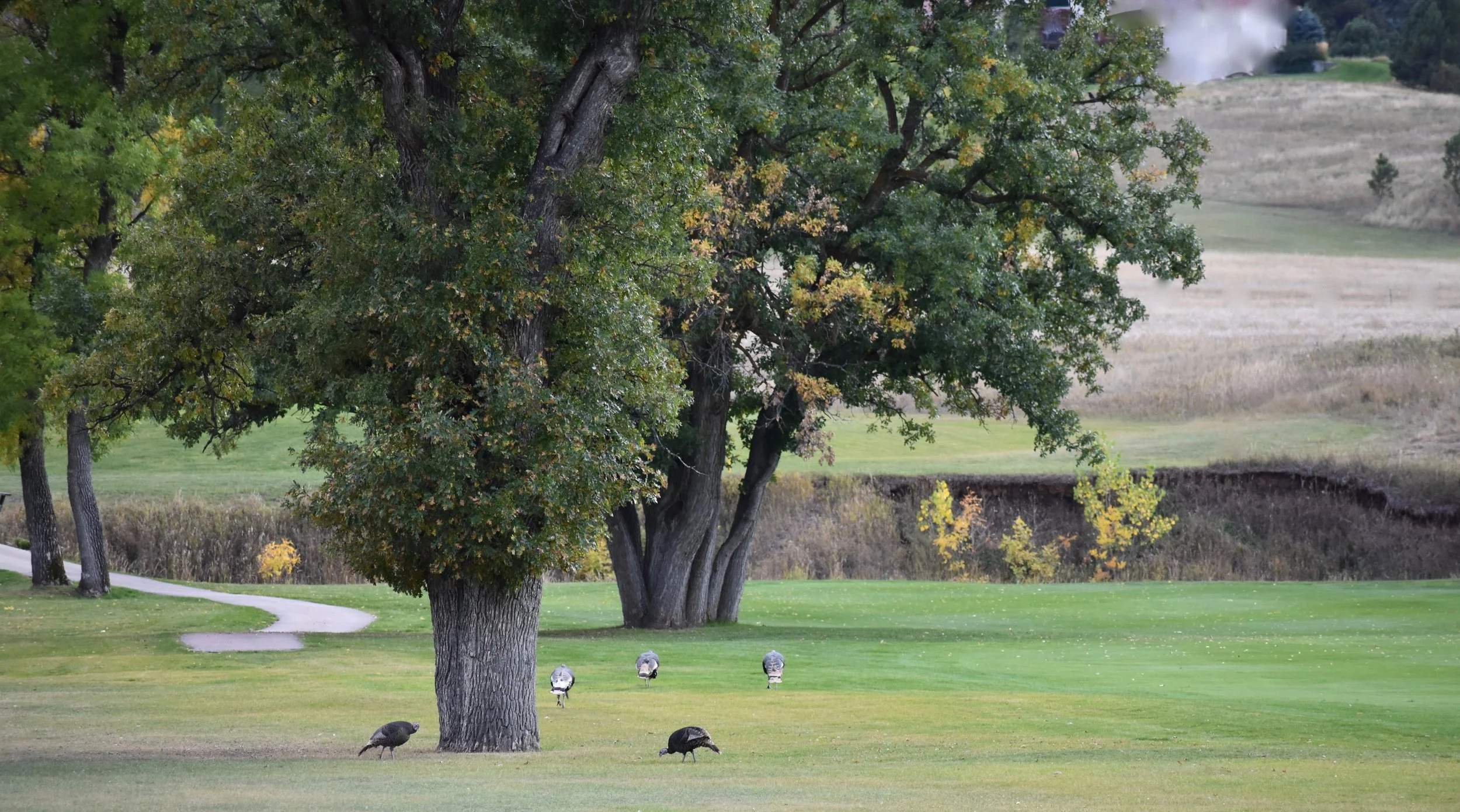Christmas-A Warm And Wonderful Season
Christmas is an amazing time of year. The Carols, lights, decorations and festivities fill most of our hearts with an energy that can be obsessive if we let it! There’s a joy, kindness and peace that seems to exude from each of us as we pass friends and neighbors on the street and sometimes even carries over to strangers.
The busy-ness of the season sends us in what seems to be sixty-three different directions and sometimes it’s difficult to keep up. There are Christmas cards to get ready, gifts to buy, decorations to put up, foods to prep, Christmas plays and concerts to attend, friends and family to entertain as they visit from out of state, and this is just the tip of the iceberg! All this activity can seem more like chaos and has the ability to set us in a tailspin.
The disability ‘people group’ have their own perception of Christmas and sometimes it’s totally different than those of their non-disabled peers. Certainly they enjoy gift giving, but shopping can be a struggle if mobility is hampered. Still, when visitors come, whether in the form of family or friends, it’s a welcome change from the routine of healthcare appointments, therapy sessions and other inhibitors they deal with on a day to day basis.
Travel can be difficult unless a trusted friend or relative is willing to accommodate, which isn’t always an option. There are a variety of practical elements which must be considered such as dietary restrictions, bedtime routines, and even transportation requirements once they’ve arrived at their destination.
Even interaction with friends and family can dampen a normally festive occasion due to acceptance and perceptions regarding a particular situation. Mixed responses can be emotionally upending.
While wanting to be included in this warm and wonderful season, it can present undeniable frustration and uncertainty on both sides of the equation. Both sides feel the weight of the other, but finding a balance to be both accommodating and understanding can be precarious causing uneasiness for everyone involved.
Those who live the ‘disabilities’ are intensely aware of who they are and should never have to apologize for any inconvenience they seem to present, or for who they are. They are beautiful individuals with a desire to love the Christmas season just as everyone else. Sometimes that happens; and sometimes it gets lost and buried beneath the inadequacies they are often cruelly reminded they seemingly have, which should never define them.
Instead, differences should be countered with a genuine acceptance of their unique qualities they can openly demonstrate, when allowed; and encouraged by people who love them just because they are!
This is the season for joy, peace, love, faith, happiness and hope. Every person world wide has the right to claim these virtues regardless of the season. As we celebrate, we need to remember that our disabled population may struggle to feel celebratory, unless we invite them into our hearts and home with genuine love and respect.
Joy, peace, love, faith, happiness, kindness, acceptance, and hope; let’s extend these foundational Christmas principals (and more) to each and every one we know and meet, regardless of any ability, or dis-ability!
#JoyHopePeaceLove #Joy #Hope #Peace #Love #ChristmasJoy #Christmas #ChristmasAndDisabilities #ChristmasVirtues #Celebrate #SeasonOfJoy #Travel #Shopping #GiftGiving #Holiday #HolidaySeason #ChristmasCarols #GiftGiving
Photo Credit: https://www.google.com/search?q=free+pics+of+Christmas
Photo Credit: https://stocksnap.io/search/christmas
Reasons To Be Thankful
Thanksgiving will be here in just a couple days. It’s a time families gather around the table and celebrate with a huge meal, some fellowship, reminiscing, love and laughter—unless of course, your family has broken relationships due to disagreements and different opinions.
It isn’t uncommon for these kinds of scenarios; and in fact it’s probably unusual if it doesn’t happen! When these kinds of circumstances upend a family gathering, it’s difficult sometimes to keep the celebration cordial, much less filled with thankfulness. But we do need to try; even if it’s hard.
Communication is important and no family is perfect. There always seems to something we need to ‘work around’. Human nature demands it. We want to share our hearts and time with our families and friends, -especially this time of year, and sometimes we have to approach it in a non-traditional way!
But there is another circumstance which can create its own difficulties, which is often overlooked by those who aren’t intimately involved. Not only can ‘this’ circumstance bring difficulties, but a feeling of loneliness and rejection from the community at large; it’s having a disability.
Thankful For Communication
A disability on the other hand, can seem like an unlikely reason to be thankful, but there are those who don’t look at their disability as something to be ignored, considered dreadful, or even something to consider anything less than a blessing.
There are those who are just grateful for the ability to communicate. A blind person obviously can’t rely on his sight to be able to read body language or even make eye contact. But using their other senses allows them to the opportunity to communicate in more creative ways.
A non-verbal person may communicate through use of an iPad or computer. By typing what he/she wants to say, they can express more clearly what they are thinking. This is especially important if trying to communicate with someone who doesn’t know sign language.
These ideas indicate there are other ways to communicate, even if abilities are demonstrated in a non-traditional way. In many different kinds of settings, it’s vital to a sense of inclusion and deepening a feeling of ‘belonging’ when a person knows they can be understood, and on the other side of this—- gain understanding! This is indeed, reason to be thankful!
What Are You Thankful For?
I wonder, what are you thankful for on this Thanksgiving holiday? I have a long list, but I will name a few. I’m most thankful for my faith which sustains me daily; my family—husband, children, grandchildren, and extended family through aunts, uncles, and cousins. I’m also thankful for my church family, for the ability to write and share my thoughts, our home, pets, the ability to travel on occasion, food and clothes, friends, neighbors, first responders, technology that allows me to communicate with a large audience, an education and the list could go on for a long time! I’m sure you get the picture!
I hope you’ll share your thoughts of thankfulness! It’s always a joyous time when we can verbalize (or in some other way) express our heartfelt thanks for our blessings!
Happy Thanksgiving Everyone! Be Blessed!
#Blessings #HappyThanksgiving #Thanksgiving #Thankful #ThankfulHeart #Blessed #Family #Belonging #Inclusion #DisabledAndBlessed #Communication #NonTraditionalThanks #NonTraditionalThanksgiving #NonTraditionalCommunication
Photo Credit (3) https://unsplash.com/s/photos/thanksgiving
Sharing Life Over Coffee
While I don’t do it often, there is something special about getting a sweet, hot cup of caramel macchiato with whipped cream and sprinkles on top from a coffee shop. It’s such a treat, but ultimately pricey!
A friend asked me the other day if I wanted to go out for coffee and then amended her question with, “We could just go to my house and have coffee! I have a Keurig coffee maker and lots of different kinds of coffee. And,” she added, “I even have some whipped cream we can spray on top!”
I laughed. “You know what? Let’s go to your house. That makes a lot more sense!” So off we go and spend the next couple hours drinking an un-determined amount of coffee while catching up on life and chatting about anything that comes to mind, without having to spend several dollars for a single coffee.
A Disability Can Change Things
While this may sound like a trivial matter, what about the person who has a disability? Randomly going ‘out’ for coffee can be a stressful matter! We are about to enter the biggest holiday seasons of the year; Thanksgiving and Christmas. It seems everyone is out and about, but what if they’re not? What if getting ‘out’ is difficult because of funds, or the lack of mobility to get to the coffee shop to have a cup of hot delicacy?
What’s surprising to me is the statistically high rise in loneliness during the holidays. I am so happy during this season, that my brain has a difficult time wrapping itself around this idea. Yet I know it’s truth. As winter sets in and everyone is running in different directions, we as peers, tend to forget those who aren’t as mobile.
We focus on our particular gatherings, parties, shopping and other obligations and neglect (perhaps even unintentionally reject) that everyone isn’t doing the same. When going to a Christmas tree lighting in the center of town, how often do you see someone in a wheelchair? In a cold climate, navigating snowy sidewalks or even just throngs of busy people, any disability equipment can seem cumbersome.
This is the time of year for joy, love, happiness and general feelings of good will, yet not everyone experiences these amazing emotions during this ‘busy’ time. Sitting with a friend after shopping and sharing a warm drink isn’t as simple as it sounds.
A Holiday of Inclusion
Rather than including a disabled friend at the last minute, perhaps this will be the year we can make the effort for inclusion from the very beginning. When you are planning an event be certain you not only invite them, but invite them early so they can make preparations. In addition make the proper preparations for accommodating their specific need. It may mean altering a location, or in some other way being sure any necessary equipment can be utilized.
Even if you are not having an ‘event’ we should all do our best to remember to include our disabled friends and neighbors during this season of ‘thankfulness’ and celebration of Christmas. Share a meal, dessert, or coffee. But mostly share generously of time. In the busy-ness in which we find ourselves, this one element, —which is ours to freely give— offer to someone whose disability limits them the ability to gather and fellowship with others.
#Coffee #SharingLife #Holidays #Disabilities #Thanksgiving #Time #FellowshipWithOthers #Inclusion #Goodwill
#ShareTime #BusySeason #DisabledFriend #DisabledNeighbor #NecessaryEquipment #InviteTheDisable #ThanksgivingDinner
Photo Credit: https://www.freepik.com/search?format=search&query=hot%20cup%20of%20caramel%20macchiato
Photo Credit: https://www.freepik.com/free-photo/close-up-woman-with-coffee_7333002.htm
Photo Credit: https://www.shutterstock.com/search/wheelchair-dinner
Honoring Our Veterans
Veteran’s Day is fast approaching. You may witness parades, an abundance of United States flags flying, gatherings of service men and women and their families for a meal or other celebrations, or even hear speeches by politicians who stop to give honor and gratitude to those who dealt with the cruelty of war through front line combat, service on ships, in the air, or in other ways.
We have much to be thankful for regarding these amazing men and women who answered the ‘call to action’ and have given a part —or all—of their lives to protect the freedoms, we in this country often take for granted. These patriots, over the years, have displayed strength, dedication, and sacrifice to God and country, in ways those who didn’t serve can only remotely relate to.
Freedom Is Not Free
While not a veteran myself, my husband is a retired Marine and served in the Viet Nam War. He and others were exposed to Agent Orange and other contaminates which have affected physical and emotional health. During that era, service men and women were often held in contempt for their participation in a war many people did not understand. Upon return to the States they were treated with cruelty and hostility.
Since the Viet Nam era, those returning home have been treated much more kindly, with acceptance in their participation in conflicts and engagements which happened on foreign soil.
But our freedoms aren’t free. They are costly! Many of the returning soldiers, from the Viet Nam era and those wars since then, have had to deal with terrible suffering, both emotionally and physically. War is not pretty. It’s cruel. It costs the lives of some, and in others has created disabilities which must be dealt with for the rest of the person’s life. We owe so much to those men and women who chose to sacrifice their lives for something bigger than themselves.
Celebrating Our Veterans
Veteran’s Day is a celebration of our brave military! It’s a time to be thankful for the heart and belief in our country to each person who has, or is currently serving. Their stories should not be lost to the ages, but shared with loved ones, and others who need to understand how great a commitment these men and women made and have given each of us, even if indirectly.
It’s a time to recognize those who fought and gave their lives. It’s a time to thank those who fought and came back and rejoined their families, even though it requires working through the memories and hardships of the conflict they lived through. It’s a time to thank those whose wartime experience left them with a disability for the rest of their lives.
Reach out to a Veteran this week. Let them know you appreciate their efforts of protecting you and your family without counting the cost. Thank them for their service. Pay tribute to all the branches of the military and the hardships they’ve had to endure. This seems to me, to be the very least we can do. I hope you agree.
#FreedomIsNotFree #Veterans #HonorVeterans #Disability #WarTime #War #Commitment #ProtectingOurRights #ThankYouVeterans
Photo Credit:https://depositphotos.com/photos/veteran%27s-day.html
Photo Credit: https://www.dreamstime.com/photos-images/freedom-not-free.html
Photo Credit: https://picjumbo.com/thank-you-veterans-free-photo/
Caregiver Inspiration
There’s a lot of people who will tell you ‘if you work in a field you love, you never work a day in your life!’ I tend to agree, since when you can do this, you are doing something that makes you happy. However, many people have a ‘job’ because they need the paycheck to make it from week to week.
When I look at a person who is caregiver of the disabled, I am both awed and inspired! Their dedication is incredible, whether its a parent, other relative, friend, or hired person. On days when everything seems to go wrong, a person may wonder how they keep from being overwhelmed, stay motivated and how they manage the stress.
A caregiver who chooses this profession, is one who wants to make a difference in the lives of others. While we all have a ‘job’ to do, sometimes we wonder how our ‘work’ improves or even affects, the lives of other individuals.
As caregiver, a person directly impacts the quality of life for those who are under their care. especially when they are able to give assistance to their ‘charge’ in the familiar surroundings of their client’s home. Their aid and support is vital to every day functionality, health, and happiness.
Being passionate and patient are some of the qualities required to care for the disabled or even a senior. But it’s important to remember, that we all require self-care. This is especially vital in this profession, yet sometimes extremely difficult.
It’s In The Love
I had conversation recently with a parent who had a highly autistic, non-verbal son. On those days when the son turned violent during adolescence, remaining calm, assured, or patient was difficult. This circumstance could strain even the most passionate person. Love is the obvious answer. This parent loved his son so much, he would have done almost anything to make his son’s life more tolerable, and often did.
This kind of love is somewhat different for a non-parent, but still often the driving force behind their care. Sometimes a person must just step back and remember to ‘breathe’! Taking a walk outside to recompose after a particularly stressful day is a key component of self-care. Perspective can be re-acclimated through time alone and the natural beauty our mind can focus on.
Self-Care
Other methods of self-care is to try a new hobby which can take your mind off the current situation; heading to the gym for exercise; allowing yourself time to soak in the tub; calling a friend to vent or even asking for help. We aren’t supposed to tackle everything alone. Asking for help does not suggest we are weak, but rather strong enough to recognize we need another perspective.
Even when we love what we do, our emotions and perspectives can become skewed due to physical fatigue and circumstances over which we have no control. When we ignore the signals our bodies give us, we risk faltering. We are human and deserve to help ourselves in ways that help us be at our best. Give yourself the gift of self-care, which is not only good for you, but your family, friends and for those you are working with, to increase their optimal quality of life. Choose to be your best and practice, whenever possible, daily self-care.
#selfcare #PassionForWork #BeYourBest #PracticeSelfCareEveryDay #askForHelp #LoveYourself #ImprovedQualityOfLife
Photo Credit: https://www.freepik.com/free-photos-vectors/caregiver
Photo Credit: https://www.freepik.com/search?format=search&page=2&query=self+care
Photo Credit: https://www.freepik.com/search?format=search&query=free%20pics%20of%20hobbies
Halloween Fun or Not?
Halloween is being celebrated across the world. It’s a pagan holiday, often to be believed to be one of the oldest holidays of the world. Many people either love it or hate it. Sometimes it can be tied to one’s religious beliefs or it can be from a frightening experience or conversely an exhilarating one; or even from a very painful circumstance.
I’ve never been fond of the holiday and only really remember ‘trick or treating’ once when I was in early elementary school. My sister and I, without any particular costume, wore simply a paper bag over our heads. As an adult, my negative feelings for the holiday has been complicated with the horror elements which have been added in our culture through ghoulish and dark witch and warlock costumes, music, movies and even behaviors which have been deadly.
All that said, my children have enjoyed the holiday celebrated in public schools in their elementary years. Parents were invited, as all the children and teachers paraded in their costumes. Following the parade were lots of treats in the individual classrooms, which were decorated in the festive orange and black, cobweb, and spidery ornamentations.
A Disability Element
I admit, the complications a disabled child might have, relative to the holiday, didn’t really occur to me and possibly to many others who have not been intimately associated with the disability population.
One person shared the story of how she, her sister and several friends were ‘trick or treating’ when she was a pre-teen. Things were going well as they walked together, knocked on doors and were given treats. Upon greeting one lady, when she opened the door, the lady greeted each of her visitors by guessing what each participate was, via their costume.
The woman was delighted with the Pretty Princess, the Little Red Riding Hood, Raggedy Ann, the classic clown and then looked at the final little girl and said, ‘Oh my. We have a Quasimodo. How original!’ A hush fell over the children, as they tried to process what that meant. Whatever it meant, it clearly wasn’t a compliment. I admit, I had to look it up. It referred to a grotesque hunch-backed character in Victor Hugo’s Notre-Dame de Paris novel.
This child was forever scarred by this verbal attack, not because of the costume she wore, but because she was disabled and the greeter at the door was horribly unkind. She looked different not only at Halloween, but every other day of the year. This was not by choice but was her reality. The woman’s words were cruel and drove the idea of her ‘differences’ stabbing in her heart.
It’s About The Costume
Costumes are central to the Halloween celebrations. Usually they are cute, silly, scary, idolizing, or funny. Sometimes costumes require props to make them complete like a cane or other aparatus. But when someone ignores the ‘costume’ and makes unkind remarks, it’s not funny, or cute. It’s not silly, or part of recognizing any kind of celebrity or icon idol. It’s cruel and impactful on children and adults who have disabilities.
They want nothing more than to be accepted by their peers and not be identified by whatever disability they happen to have. Perhaps this will be the year you will have the opportunity to recognize what’s ‘behind the costume’ and see the ‘abilities’ rather than any ‘dis-ability.’
Photo Credit: https://www.dreamstime.com/photos-images/wheelchair-halloween-costume.html
#Halloween #disabilityAndHalloween #ScaryCostumes #behindTheCostume #horror #HalloweenDecorations #HalloweenParty #TrickOrTreat #CostumesForTheDisabled
Communicating Successfully
“Read to me,” my granddaughter says handing me a book. Curling up in my lap, the three-year-old prepares to journey through a story. She delights in pointing out things she recognizes and listens intently. If she knows the story well enough, she’s quick to point out any mistakes or variations of the story I try to make.
Literacy is such a vital part of daily life. It’s more than just being able to read. It’s about listening, speaking and communicating successfully! These skills are important to teach our young ones early, since they are carried with them, the rest of their lives.
As parents (or grand parents) when we read a story to our child we are setting foundational importance on these skills. Stories aren’t, however, the only way a child can learn. Singing songs, reciting rhymes, and playing with them, aids in their ability to grasp these elements and use them correctly.
I remember when one of my daughters was in first or second grade. We were traveling and I was pointing out signs for her to read. There was one, (I’m not certain now what it was) but asked her to try to read it. Looking at it intently, she said, “My eyes don’t see in cursive!” I hadn’t noticed the sign was indeed in cursive, so not being able to read it, made perfect sense.
That concept carries over into a child’s ability or lack of ability when not exposed to the different ways words are written, sound, or even mean. This is true even for a toddler, who doesn’t seem ready for such interaction, but can pick up more than we expect.
If a child is spoken to with ‘baby talk’—using only words with a single syllable or in a manner a toddler may speak, that is what they learn. They mimic other learning from what they see, why not speaking, as well? If a child is spoken to in complete sentences, and even asked to ‘rephrase’ when not answering correctly, they will rapidly learn the correct way to enunciate and articulate their own sentences.
Reading Is Key To Learning To Communicate
Learning to speak well, is carried over into reading. They can hear a story, and pick up on the tone, the sentence structure and even pronunciation of words they may not even know. Discuss the story when finished. Ask questions relevant to the story and listen for their response. You may need to alter your question, but when they can answer correctly, you can see them thinking! The challenge enhances growth.
A child with dyslexia or other developmental delay may still struggle with this, but by working on the ‘correct’ way in daily conversation, you are choosing the correct path for your child. When talking with infants and toddlers, the ground work is in place to increase vocabulary, recognize and pronounce correctly animal names, colors, objects, food, understand directions and more.
By teaching a child to use manners, (by using please and thank you) and vocalizing greetings, sing songs, and saying rhymes, they are being conditioned to strive for the best in communication.
Promote Learning Through Encouragement
Introduce your child to coloring and writing (under careful supervision, of course.) This idea stimulates the child’s interest in further communication. All these skills promotes literacy, even if the child struggles due to a disability. Display their masterpieces, either on the refrigerator or other designated area where it can be seen. Note their improvements. This promotes further development.
Everyone wants to be able to communicate. There are some who are exceptional, others are average. Those with a disability must work harder. But we can all learn and despite the struggle, it’s well worth the effort!
Photo Credit: https://www.freepik.com/free-photos-vectors/children-reading
Photo Credit: https://www.freepik.com/search?format=search&query=parents%20reading%20to%20children%20
#communication #CommunicateSuccessfully #WeCanAllLearn #LearningToSpeakWell #ColoringTeachesLiteracy #Literacy
Words Matter
When my husband and I traveled across country, people could often tell where we were from because of our accent and the words or expressions we used. Once while camping and using the shower facilities in a campground with my young daughters, someone called out to me and said, “You have to be from the Eastern Shore!”
“We are,” I responded. “But how did you know that?”
“By the way you talk,” she said.
Needless to say, I was totally shocked. I had no idea I had even the remotest accent or used any particular dialect relative to the place we lived. But given I never saw or met the woman who spoke to me, I apparently did!
UNIQUE TO GEOPGRAPHY
In the northern states people put items in a sack, while on the east coast items are put in a bag. We have sodas, other people have pop. Many grandparents are mom mom and pop pop, while in other areas they are Grandma and Grandpa or Nana and Poppa. It has to do with geography. None is wrong, just different.
In the Appalachian Mountains there is a distinct dialect which sets it apart and has been suggested as being inferior, due to seclusion from other areas, apathy, and absence of education. The culture has been subjected to accusations of unsophistication. This is far from the truth. People are just different, and there is nothing wrong with that. In fact, the dialect and accent is an appealing element of that area. There have been times when I’ve looked at a total stranger with whom I’m having a conversation and say, “I could listen to you talk all day long!”
When we share our faith or political views we are sometimes accused of a variety of things. It might be stupidity, lunacy, ignorance or even fanaticism. When attacked in such a way, we might choose to cower and stop sharing, even when we would rather not. We aren’t trying to be fearful, we just want the mocking and insults to stop.
Recently a young woman I don’t know “followed” me on Twitter. I responded with a thank you and hoped she’d find my posts a blessing. I was taken aback when her response was negative and downright insulting, especially when she “followed” me, not the other way around. I wanted to respond, and ask why she followed me, but the internet (or my computer) –or a Higher Power intervened and I could not make connection.
It’s difficult to react positively when unkind things are being said. Often our instinct is to respond with equally negative reactions. When we do this we are allowing the negativity control us and rule our thoughts and behaviors.
DISABILITIES AND WORDS
This pattern of behavior seems especially evident regarding those who have disabilities. Sometimes a disability is invisible to the general population, yet this person could be experiencing incredible physical pain. I’ve heard the comment before when a person gets out of a vehicle parked in ‘Handicapped Parking” —with a permit displayed, that she/he is abusing someone else’s placard because they didn’t ‘look’ disabled. Other times people will make an unkind remark when having to go around a wheelchair, or wait because a person is deaf and/or mute and is trying to make themselves understood. These are only a few examples, but the incidents are real and can be demoralizing!
So I challenge you to offer understanding when people are different from what seems “normal” in your world. Different isn’t necessarily wrong. On the other side of the isle, consider the person throwing vile and offensive comments as an opportunity to demonstrate the goodness, hope and happiness in your life. You might be the only glimpse of joy they’ve seen all day long!
#disabilitiesAndwords #WordsMatter #qualificationRequiredForParking #parkingpermit #It’sOkayToBeDifferent #IamDifferent
#wordsHurt #wordsCanBuildUp #WhatIsNormal #differentIsn’tWrong #differentIsJustDifferent #BeKind #OfferHope
Photo Credit: https://www.google.com/search?
The Arts Are For Everyone
The Arts Are For Everyone
Art of all types can be a powerful way for children with disabilities to express themselves, build confidence, and cultivate creativity. Unfortunately, many children with physical and cognitive disabilities are not given opportunities to explore all of the possibilities that the arts have to offer.
Today, guest author, Clair Wentz, shares a few tips on how you can help your kids get involved in the arts.
Make art accessible
Art activities should be accessible to all children. This means that you’ll need to provide accommodations for your children. This could be assistive technologies, modified materials, or a quiet room where they can work on their masterpiece without distraction.
Celebrate creativity
All artwork is subjective – the Eden Gallery explains that art may be meant to express feelings. And that means that every brushstroke, every note song, or every dance move mastered is something to celebrate. Be your children’s biggest advocate and their loudest cheerleader by celebrating each artistic task complete. A quick note here: be respectful of your kids. If they ask you not to yell praise from your seat, don’t embarrass them!
Save the art they do
All kids will, at some point, draw, paint, or create clay works of art. Save them if you can, and create a digital version of them if you can’t. Even something as silly as a face painted on bread with jelly is worth celebrating and saving… But going digital can cut down on the mess and the ants! You can scan images and take photos and use an online PDF tool that lets you drag-and-drop your pictures so that you can save them digitally to look on later or share with friends and family. Looking for a PDF conversion tool? This may help.
Read them stories
Children love to hear stories that involve people with issues such as theirs. And since disabilities come in many different forms, make sure that you expose them to literature, movies, and other stories about people dealing with the same things they are. If your child has cancer, for example, Bristol’s Special Day may be a great book to read.
Encourage independence
Although children with disabilities might need help and they may need more time to complete artistic activities, encourage independence where you can. And remember to be patient and understanding if your little ones struggle with making messes or staying on task. The PediaPlex blog explains that you can also give your children challenges and set goals to encourage them to do more on their own.
Seek out others
It’s human nature to seek out people who are like us. Children with disabilities are no different. They might feel more comfortable doing artistic activities with people who face the same challenges as they do. If they have Down syndrome, for example, you might find an adaptive dance program. The Harvard Gazette offers more information on adaptive dance and explains that it helps children with disabilities learn how to follow directions, better understand music, and work well with others.
Whether you are engaging in sensory play with food coloring and cornstarch or letting your children dance their hearts away, art is for everyone. All children can be encouraged to engage in their favorite activities, and there is no right or wrong way to go about it. Get your children excited by creating digital keepsakes of their art projects, celebrating their creativity, seeking out and reading about others with the same challenges, and encouraging independence. These seemingly small actions on your behalf may have a huge influence on your children and can help them unleash the inner creativity that you’ve always known they had.
Photo Credit: https://www.pexels.com/photo/a-girl-dancing-in-pink-dress-7403370/
A Deliberate Fall Rest
Fall is such a wonderful time of year. The air turns crisp and clean, the leaves on the trees turn pumpkin orange, lemon yellow, vibrant red and a shimmering golden. The smells of chimney smoke filters through the air, mixing with whiffs of baking bread in the oven, or a batch of cider is cooking on the stove.
There’s always things on the to-do list that need to be attended. The garden needs putting to rest, the last of the grass needs to be trimmed, closets need refreshing by implementing the fall wardrobe over the summer, Fall cleaning with all the windows open to ventilate, is crying out to be done and the list could go on forever, if a person allowed it.
What happens to a time to rest during the flurry of trying to get everything done before winter arrives? Isn’t it interesting that we talk about putting the garden to ‘rest’ when we don’t seem to have time to give ourselves the rest we need?
I’m guilty of having a difficult time allowing myself to rest. The list of to-do’s often steal my ability to settle in and relax. I’ve been described as a person who doesn’t sit still. That’s close to accurate. Even writing comes in fits and spurts, because I’ll write a bit and then get up and do something else and come back to whatever writing project I’m working on. Rest comes hard for me and that’s true even when I put it on my to-do list!
Organize, Organize, Organize!
Organized people will tell you ‘prioritize’. I try, but I’m not good about prioritizing productively. My goals and targets are adjusted to the best of my ability so that I’m still moving forward, even if it’s a jagged line. So I do the best I can and ‘try’ to not worry about what I haven’t gotten done!
A person with a disability has the added pressure of desiring the life of success as their non-disabled peers. Their goals are before them, like everyone else, but the bar is sometimes set at a higher mark in an attempt to match what culture has found responsible and proper.
We are taught from a very early age we are only ‘responsible’, if we pursue our dreams with the utmost desire. Our world has this mindset we should all be equal in achievements and capabilities. They neglect to recognize, I think, that we are each individuals, with different goals and abilities. Sometimes that’s by choice, other times, it isn’t.
Just like the garden needs rest, our bodies (and minds) need rest, and guilt should not be in the equation, yet it often is. When trying with all the effort we can muster just to keep up, it often ‘turns’ on us and makes each day more stressful, and even more so, if a disability is part of our identifying make up.
Slow Down And Enjoy This Season
How then, can we slow down and enjoy this amazing season of Fall? There are lists on line if you choose to find one. (I’ve added an awesome link at the end of the post if you’d like to check it out!) Here are a few I’m particularly excited about trying!
A Nature walk. This is an activity most everyone can do. Get outside and breathe the clean, brisk Fall air. Your lungs with thank you! Check out the critters around you. Watch the squirrel gather nuts and jump from tree to tree, or the cat (or dog) chasing leaves as they float to the ground. Collect acorns and dried flowers. Drink in the colors on the trees, as your mind wanders back to when you were a child and just ‘be’!
Carve a pumpkin. Carving pumpkins can be challenging, but imagine the delight when you have the seeds roasting in the oven for a snack later, the pumpkin puree saved either in the freezer or canned for a yummy pumpkin pie or pumpkin muffin at another time; and then the beautiful carved decoration for Halloween placed on your porch for others to see! This is Fall!
Go on a hayride. This one might take a bit of research, but it isn’t uncommon for farms to offer this activity at a Fall Festival. There is something immensely satisfying about being on a farm and relaxing as your breathe in the scent of fresh hay, as you ride slowly over the grounds, drinking a warm cup of apple cider.
And if all these fail, grab yourself your favorite warm/hot drink, pick up your favorite book and sit out in the warm sunshine and read awhile!
These events aren’t just for the young, but the young at heart and for the disabled and their counterparts, the non-disabled. It’s the perfect time to make new friends and rekindle old ones.
Rest is vital to recovery, even daily. Be deliberate. Take time to rest and rejuvenate without guilt or shame. You deserve it!
https://premeditatedleftovers.com/naturally-frugal-living/30-ways-to-slow-down-and-enjoy-fall-2/
Photo Credit: https://depositphotos.com/photos/get-organized.html
Photo Credit: https://www.dreamstime.com/search.php?
Summer Wind Down
Here we are, nearly in mid-September and still trying to hold on to summer. Our days spent lounging on the sofa, or the big swing on the porch with a book is all too quickly coming to an end. Most of us hate to see it go, even though in many places across the States, it’s been a year of unusual weather! From drenching rains —and hurricanes, to dry and hot, it seems most of us have had something we’ve ‘murmured’ about!
How does a person wind down the summer? Most of our kids are back in school, in whatever shape that takes. It might be public school, or a virtual one or even homeschooling. In any event, changes are taking place as everyone acclimates to the alarm early (or at least earlier) than we’ve climbed out of bed during the summer break.
Still this time of year is when we begin to forge pathways our brains sometimes fight against, while others soak it up like a sponge! As children learn in the classroom, we adults try to be more productive in the workplace or on the homestead or in ‘work places’ that are in our home! This comes in many forms and sometimes in the form of a homemaker, and that’s a job in itself! Whatever we choose ‘to be or do’ the goal is to be the best we can be!
Unwind And Enjoy What’s Around You
As we move forward toward the next phase of our lives, looking for positives in every single day is helpful. It can be as simple as taking a walk in the park, listening to ocean waves, or hiking a mountain. These positives have the ability to tap into all five senses and make us aware of the moment!
Perhaps create a ‘memory wall’ of the summer adventures. Display photos taken of family, friends, trips and adventures in an area where each event can be recreated and cherished. Maybe even let the kids help with the selection of pictures to be posted and even add keepsakes garnered over the summer during adventures. It could be a book discovered, a rock that has special meaning, a recipe for a special treat or meal or other item that brought special memories from the summer.
Reducing distractions is another way to create a positive, in our day to day lives. Most of us gravitate to our social media accounts in the early morning. What could your day be like if you chose to ignore all the technological devices and allures and just spend the early morning working on your ‘faith’ and making memories with your family?
Our children spend so much time in the school room—-or at least in ‘schooling’ we are limited to one on one time. In those early morning hours while kids are getting ready for school, take a moment and be ‘present’ with them. Listen while they share anxieties, or excitement over the coming day. Remind them you are there for them.
Spouses are another place where being ‘present’ is challenging because of schedules. Take a moment (even if it means rising just five minutes earlier) to share a moment with them!
As parents of children with special needs, this is especially important. Changes can come hard and as the weather turns cooler, days are shorter, and schedules are more complicated. Wrap your arms around them and encourage them to welcome the new, while allowing them to transition gradually to all the changes.
Summer is a wonderful time of year. But each season is a time of change which can be good, when we look for the positive, ‘be present’ and savor the moments spent with the loved ones in our lives.
Photo Credit: https://www.gettyimages.com/photos/porch-swing
Photo Credit: https://www.dreamstime.com/photos-images/present-moment.html
Every Child Can Learn
Labor Day is behind us and if school hasn’t already begun in your area, classes now will start in earnest across the nation! We send our children to school, have virtual school or homeschool, to get the education they need to live a successful and full life. They will gain the knowledge which will enable them to make decisions that affect their lives, and as they grow into adults, even for the families of their own.
Learning To Read And Write
September 8, 2023 is International Literacy Day. What Is Literacy? According the ‘Wickipedia” “Literacy in its broadest sense describes "particular ways of thinking about and doing reading and writing" with the purpose of understanding or expressing thoughts or ideas in written form in some specific context of use.” Wikipedia
There was a time when many people didn’t know how to read and write. Contracts were signed where families were cheated because they had to rely on—and trust— someone else to tell them what the document said. Signatures were simply ‘your mark’ because the gift of being able to write had not been learned.
As parents we never want to see our children being cheated or humiliated because of their inability to write, spell, read, or do math problems. When they struggle to ‘get’ it, we work with them or hire someone else to help them, until they finally connect with the processes.
Different teachers have different methods of teaching these basic skills including allowing to let children learn to ‘read’ on their own. It’s true, children learn at different rates, and learn information according to their interest more easily. In a classroom there is, however, a specific guideline for teachers, which are mandated by the county or school district. Whatever the plan, the goal is the same: each child will to learn to read and write.
We All Learn Differently
What happens when a child has a learning disability which hampers their ability to learn? It may be because of a brain injury, dyslexia, or other problem which keeps them from grasping the needed information that will allow them to read, write, listen attentively and master speaking and reasoning tasks.
It’s in these instances when teachers and parents must be dedicated to teaching children to function to the best of their ability, regardless of any pre-conceived in-abilities! This means assessing each child’s learning skills and work on getting the most out of what they can do, and then build upon that.
Every child can learn. It may be visual, or through touching, feeling and movement; through social interaction; perhaps better alone; verbally and through listening; logical thinking; or even through a process of hearing directions and replying audibly with the answer, known as the ‘aural’ learning style. It may be a combination of several or a little of all of them, depending on the subject and interest! Every child deserves the opportunity to learn at his pace, while using his style or styles, and not necessarily compared to his peers, or boxes, designed by others.
As we recognize Literacy Day this week, let’s remember that our children are not numbers nor statistics, but humans who were designed to make a difference in theirs and other’s lives. We can make a difference in theirs, when we allow them and encourage them to learn and grasp the ‘literacy challenges’ in ways that best suit them.
Photo Credit: https://www.dreamstime.com/photos-images/school-opening-day.html
Photo Credit: https://www.dreamstime.com/photos-images/literacy.html
Photo Credit: https://www.freepik.com/free-photos-vectors/kids-learning
https://www.google.com/search?q=what+is+literacy%0D%0A%0D%0A&client=safari&sca_esv=561395160
Legacy of Entrepreneurship
Monday, September 4 we will celebrate Labor Day; a day to celebrate workers. It’s a great weekend where people often take mini-vacations as a last effort to get in some holiday time before school officially begins again in many areas. The long weekend takes people to the ocean waves, or fresh mountain air to enjoy time spent in family gatherings for picnics and merry making!
Interestingly, this is not why Labor Day was designed—although it was a ‘holiday’ of sorts! It evolved during a dark time in our American labor history. In the late 1800’s when the Industrial Revolution was a booming success, the average laborer was working a 12 hour day, seven days a week, just to make a very sparse living.
There were restrictions in some states, but children as young as five, worked in factories and in other areas earning only a fraction of the wages adults earned, for all their effort. Additionally laborers dealt daily with unsafe working conditions, a lack of fresh air, unclean workspaces and very few breaks. Violence became commonplace as workers rebelled against these low working standards.
Labor Day was first dubbed ‘a workingman’s holiday’ in 1882 during this violent time, as workers took unpaid leave from work to march into New York City. It wasn’t until 12 years after this first ‘holiday’, on June 28, 1894 that President Grover Cleveland finally made Labor Day a federal holiday.
ACHIEVING DREAMS ON MY OWN
Rather than working for someone else, entrepreneurship has become an American staple. People have long believed the way to achieve their dreams is to create their own businesses. It is here they are their own boss, are able to set their own work hours, and create a legacy for their loved ones.
Examples might be an artist, small maintenance or vendor business, a one location restaurant, a small boutique, a cleaning or a technical service; pet sitter or mechanic. The list could go for pages, totally contingent on a person’s creativity, ability, personality and even ambition.
Entrepreneurship has been lauded and embraced across the nation by most folks, for anyone who is willing to put forth the effort— except for someone in the disability population. Those who have a disability are often viewed as someone who has ‘no’ ability. Quite the contrary, however! Statistics are rising that indicate the disability community is paving their own path in entrepreneurship in careers and professions in which they are talented and excel!
A DISABILITY WON’T STOP DREAMS
Self-employment in the disability arena has risen nearly twice as much as their non-disabled counterparts, according to statistics over the last years. This is significant considering the stigma associated with having a disability. This people group is proving that they want to join the labor force and are empowered with ‘ability’ rather than a lack of ability!
This fact is not only good for each of these courageous people, but also for the economy! Our country is a better place when those who want to earn their way through life can do it successfully and become independent! Their new ideas, talents and innovations brought to life from determination, grit, creativity, talent and abilities in which a person thrives, is the best antidote for the lack of drive we see rising in our culture! They not only deserve our encouragement; they deserve our gratitude!
To every worker, non-disabled, and disabled alike, who wants to make a difference in their life and the lives of others, you are to be celebrated on this Labor Day. For your efforts; thank you!
Photo Credit: https://www.google.com/search?q=free+pics+of+labor+day&client=safari&sca_esv
Photo Credit: https://www.pexels.com/search/sewing%20%20entrepreneur/
Photo Credit: https://www.freepik.com/free-photos-vectors/disability-business
Corralling Stress
Some months ago we were in a car accident. It wasn’t horrific and no one was hurt. My car, however received a good bit of damage. This meant dealing with the insurance company, making sure we had a vehicle to drive until mine was repaired, and other issues that generally come with that kind of incident. On top of this, my husband wasn’t well, we were supposed to travel, I had writing to do, my daily ‘domestic duties’ to take care of, a garden that needed tending and the list just seemed to bury me under. I was overwhelmed! I was stressed! I cried a lot as my world seemed to spin out of control!
On a much simpler level, yet just as intense, was when my granddaughter was in public school years ago. Each morning her stomach would hurt and she’d be sick, she’d have a headache and cry all the way to school. She was stressed!
Stress lives in everyone’s life! It can be good for you, because it drives you forward. When I was in college (as a non-traditional student) I was determined to carry a 4.0 average. I came close at graduation with a 3.8. Working toward this goal could be stressful, but I was determined, even when the subject matter seemed beyond my comprehension—Math and Science were a struggle for me—especially after not being in a classroom for thirty years.
On top of this I was married with a family and grandchildren! We had a son in the Iraq conflict overseas, one of my daughters and husband moved to another state, my husband’s health was deteriorating and the list seemed insurmountable. Yet there was a positive stress level in my goal for graduating—and doing it well!
Stress affects different people in a variety of ways. Some may cry, such as I did, make you physically sick, like my granddaughter, but it can also cause a person to stutter, have depression, be argumentative, disoriented, cause withdrawal, or compulsive talking, confusion and so much more. Each of these attributes from a single person affects the entire family.
Adults, like myself often deal with stress on a variety of levels. But when a child has a disability they find themselves juggling much to keep a good balance in the home and that, too can cause stress. But it doesn’t stop there.
Like my granddaughter, children are often affected with stress. That can make them work harder to succeed, or it can break them, depending on personality and abilities. When you add a mental disability, the stakes are even higher.
Children can recognize they are ‘different’. That doesn’t mean they are wrong, just different. Yet there is a stigma that becomes attached to the ‘different’. Peers may not be kind or understanding. He becomes frustrated with what he can or cannot do. Developmental and physical transitions seem challenging and complicated and cause worry and anxiety about being able to do what is expected. They become stressed and this further complicates successes.
Fear grips all of us and in my view this is part of the ‘stress element’. I became fearful of all the ‘stuff’ I was afraid of not completing or getting figured out after the accident. My granddaughter was fearful of the classroom and not fulfilling expectations of her teacher, her parents and even herself!
Parents are fearful of not doing the ‘right thing’ for their children (disabled and non-disabled). And the disabled child is fearful of all he does not understand and anxious about what is going on around him, what others think, and so much more!
It’s paramount that as stress levels rise, we find relief. Sometimes it’s just crying (like I did) until the crisis passes. Other times it means talking to someone close to us about our worries, or perhaps even a professional. Other times it requires medication and learning coping strategies.
Sometimes it means planning self-care like soaking in the tub and relaxing, taking a walk outdoors in the bright sunshine, or even in the cool briskness of early morning. It may mean losing yourself in music, riding a horse, exercise or a hundred other ideas which help you relax.
Stress is real. It can crush you unless you are able to corral that energy in a positive way. It takes determination but it’s well worth the effort.
Photo Credit: https://www.istockphoto.com/search/2/image?phrase=stress
Photo Credit: https://www.freepik.com/free-photos-vectors/child-stress
Photo Credit: https://www.istockphoto.com/search/2/image?phrase=self+care
Fall Is Just Around The Corner!
Fall! While it’s still a few weeks off, it’s a great time to start thinking about this amazing time of year. Days will still be warm with bright sunshine, while the sun sets earlier and the nights turn cool. Leaves are begging to change into their stunning yellows , bright oranges and rustic browns and gently find a resting place below the branches where they have lived all summer.
The occasional smell of an early morning fireplace taking the edge off the brisk morning, intermingled with the damp, cool, earthy scent to start your day is a reminder that a change is in the air. Warming around the campfire in the evening toasting s’mores creating memories is still another reminder that the earth is preparing for its annual rest.
Putting the Garden to Rest
It’s time to ready the garden for rest, as well, so that when spring returns, new growth can resume in earnest. Removing left over tall weeds before they go to seed, pruning, removing summer annuals, raking and collecting fallen leaves to use as a nutritious mulch over flower beds and garden boxes is a great way to spend a nice afternoon. Evaluating what plants worked and what didn’t, planting fall bulbs for beautiful color in the spring along with veggies that could make it over the winter months, are more pleasant ways to spend time outdoors before the chilly wind drives you inside.
A Season of Unique Fall Possibilities
It’s a season with unique possibilities. A trip to an apple orchard to pick the delicious fruit, followed by caramel apple making, apple cider sipping, apple pies to bake and a hundred other apple dishes just waiting to be created and devoured, is a perfect example!
And those huge, beautiful, orange pumpkins! A trip to a pumpkin patch is just the ticket to find the perfect pumpkin for carving and another for painting, and one for muffins and pies to bake. And they make beautiful Fall decorations placed on the porch for a perfect, warm invitation to guests and Halloween visitors in the not so distant future!
In addition to these traditional Fall activities, the sheer joy of watching children playing in the leaves which cover the ground, and brisk walks with camera in hand, for breath taking colors gracing the trees, while squirrels are scampering to and fro, harvesting nuts to store for winter are also ideas which can be done in groups or even in solitude.
A Special Time For Everyone
These astounding adventures are not limited to only the healthy and abled. Each of the scenes I’ve mentioned, can and should, include the disabled. What better way to insert huge doses of encouragement and positivity to anyone, than to indulge in the natural beauty that wraps around us?
A little extra effort in planning for excursions may be required to accommodate someone in a wheelchair or otherwise disabled, but the benefits are so worthwhile. And on those days when the weather isn’t conducive to being outside, carry the Fall theme inside by drinking some hot chocolate or warmed cider, while putting an autumn puzzle together. If puzzles aren’t the favorite, find a paint by number picture to paint and watch as you create your very own Fall masterpiece.
Perhaps most important is to capture the memories that only come with Fall. Small, good things encourage us to celebrate each moment as if it were our last. As we share these moments with our children and loved ones, the memories they carry over can have a profound impact on their lives. Pause and create these Fall moments to cherish!
Picnic Memories
The weather has been crazy all across the land. Places are hot as fire, others are soaked with rain, while others are cool and suffering drought. Still, summer is an amazing time of year.
It’s wonderful to be able to get outside and take a walk, go wading, stroll through the park, take a dip in the pool, lake or ocean (depending on where you are!) or riding a bike, in a convertible with the top down, or even on a motorcycle!
Children often seem oblivious of the weather patterns. They only want to be outside! It’s awesome to see them running through a sprinkler or bobbing in a pool. Little ones love to chase bubbles blown through a magic bubble blower, just playing in the dirt in the sand box, or swinging; and chasing fire flies at night is a delight. Older ones may try their hand at photography or water colors or going down to the pond to fish.
Of course with weather conditions, all these ideas must be customized and instead of outdoor fun there are puzzles to conquer, monopoly and other board games to master, or videos and movies to watch.
The COVID pandemic played havoc with gatherings of any kind because of social distancing! It’s been a real boon to relationships to see many people coming together again for face to face celebrations and fellowship. Even outdoor picnics seemed to have taken a backseat to all the hysteria of the ‘germ’. Thankfully, the ‘germ’ has been contained, at least to a degree and we can enjoy the adventure of an outdoor picnic again!
Summer’s end seems to be the perfect time to join forces with the community, extended family or close friends, to create an adventure called a picnic! Tables filled with fresh vegetables from the garden, and fruit fresh off the vine, along with burgers and hot dogs, pasta salads and a hundred other wonderful items that seem to be summer favorites, tantalize our taste buds. And of course there is watermelon to finish off the celebration, until evening comes and a campfire that begs of s’mores!
Along with all the food to enjoy and devour, there are games, races, possibly a jump in the pond or lake to cool off; volleyball or badminton challenges and more!
Picnics and activities are not only designed for the non-disabled, but wonderful for the disabled, although there is likely some customizing necessary. Those in wheelchairs or otherwise disabled should not be denied a fun time of fellowship, friendship and the pure joy of interacting with others, playing games or partaking of other adventures!
Encourage youngsters, disabled or not to help with prepping the food to carry, which helps teach independent living skills. Discuss the kinds of games everyone might enjoy. There are games which highlights balancing, throwing and other kinds of customized sports activities which can include the disabled child, as well as others.
Another customization idea to help make your picnic be a success for those with disabilities is to make available picnic tables which accommodate wheelchairs. There are guidelines to help with that if you are interested in creating one. https://www.theparkcatalog.com/nsearch/?q=ada+picnic+tables
Learning and thriving together is the greatest goal for all children. As summer comes to a close, making available a designated time for interaction for all children, regardless of abilities is a wonderful platform for deepening friendships, a time for learning and understanding differences, and pure joy for everyone involved. Take the time to make special memories with your… end of summer picnic.
Photo credit: https://www.dreamstime.com/photos-images/picnic-table-food.html
Photo credit: https://www.verywellhealth.com/best-sports-for-kids-with-autism-260157
Laughter Is Good Medicine
My teenage granddaughter told her 2 1/2 year old sister, Kenzie, to stay inside while she went outside to spray dirt off her feet. Kenzie decided to go out anyway and was inadvertently sprayed by the hose. Deciding to tattle, Kenzie went inside to her momma and slapping her leg in total indignation said, “You know what Dani did to me?” And continuing without waiting for an answer said, “she sprayed me with the hose and got me soaked. That was a very bad girl!”
For a two-year-old having that thought process is indeed comical. But she makes the point that sometimes in a bad situation, (she had misbehaved after all) the best option is to make it a laughing matter!
Convoluted Conversations
My husband has hearing loss and in the spring during peak allergy season my sinus issues impacts both my ears, causing me to have some degree of hearing loss, as well. That can get comical since during a conversation we neither hear well and then process what we are hearing incorrectly. Oh my! There have been some interesting, convoluted conversations that have left our children in stitches! This is another case of making a bad situation, a laughing matter. (And yes, it can be bad if what you ‘heard’ was somehow insulting and totally taken wrong.)
Our children were notorious for teasing each other. We see our grandchildren do it too. Usually it’s all in fun, and laughter rules; and that’s a good thing. It’s been proven over and over that laughter is good medicine! It is a great stress reliever!
I remember our family traveling, with five young ones. When things were going badly, whether the weather had become ugly, we needed fuel and no service stations were handy or one or more of the children were having a bad day, our one daughter would invariably, at some point, make some comment that had all her siblings, along with both her dad and I, in belly roll laughter!
Laughter Can Take The Sting Away
As a young person I was dubbed ‘shorty’ by some of my peers—and family members. I’d laugh, even though I loathed the name. But laughter somehow took the sting away. I knew I was short, but somehow it felt like a jab at the person I was—or wanted to be. In the same manner, children who are overweight, sometimes get dubbed ‘fatty’. I recall in school the victim would laugh at the name calling. Again, it took away the sting and made it look like he didn’t care. Regardless of the small giggle, and makeshift acceptance, it’s unkind to continually poke fun at someone because of something you consider ‘faulty’ or ‘distorted’ or something less than perfect.
It’s interesting that often when we are around someone who is disabled, we tend to be more cautious of what we say, perhaps with just a touch of formality. I contend while we’d never want to deliberately hurt anyone’s feelings we need to remember they need laughter too. When the conversation is between friends, the dialogue will often include just a bit of bantering and that’s good!
Sometimes they will initiate it by making a comment of their own. They may say something about their disability in self-deprecation and then giggle. Their struggle is real and while they don’t necessarily want someone poking fun at them, they recognize that life is easier when you don’t take yourself so serious, that everyone else is uncomfortable.
Keeping things light and ‘friendly’, knowing that we all need some laughter is in good taste, if you have a friendship bond with those around you, whether disabled or non-disabled. Teasing or bantering in fun is wonderful and eases stress. It is important however, to not repeat the same ‘jab’ so often it becomes hurtful and rude.
Laughter! It’s good for our spirit, decreases stress and even has physical benefits!
Photo Credit: https://www.dreamstime.com/photos-images/spraying-garden-hose.html
Photo Credit: https://www.google.com/search?q=free+pics+hard+of+hearing&tbm
Summer Fun
This summer seems to be hotter and more humid early in the season, reminding us of the hot, hazy days of August!! It makes a body wonder what next month will be like! Weather across the globe seems to be off kilter with places normally dry, now inundated with rain. While other areas are suffering an unusual drought! It seems like a big weather shift. Many of us are finding we are hiding in our homes to find the comfort of cooler air and less humidity!
Because we adults don’t necessarily deal well with the heat, our children follow our example and find relief inside as well; instead of being outdoors riding bikes, fishing, jumping ropes, exploring the woods, or discovering other adventures. This often begs the question, ‘what are we going to do?’
There Are Options
There are options, even if you have to get a bit creative! Library reading programs might be a place to begin. In this element you have the added advantage of enjoying air conditioning while searching for the right books and other activities available there. There are also activities available at the local YMCA. Swimming facilities are always a plus, as are rock walls, group exercise, and more!
But there are other alternatives. We all need to grocery shop. Often it’s a weekly ‘chore.’ Include the kids on the journey. Let them help with the menu and then the grocery list. Allow them to find the items in the store, perhaps choose and weigh the produce or fruit. In this manner, they are learning real-life lessons without the formality found in a textbooks.
Play a board game! Pull out monopoly, a geography trivia game, scrabble or a hundred other choices! It’s a great way to learn patience, strategy and setting goals, or depending on the game, even team playing, along with how to win or lose gracefully.
Other ideas include field trips, encourage letter writing or even help with household chores. But another idea might be to volunteer somewhere as a family. When we volunteer our time to those in need we not only help them, but also deepen our maturity and builds compassion and life skills.
Customize Activities For Disabilities
While it’s great to have these ideas, they don’t always work for the child with a disability. It’s important to be careful to not throw off their normal routine dramatically. This can cause more damage than good! Predictability is often key! But children with disabilities can be offered the chance to enjoy alternatives to learning in a classroom, if done gradually, and in a place where the setting isn’t too far off normal.
Be sure to talk with your child about an upcoming ‘adventure.’ Try to stay positive. You may need to customize these ideas for your child, and their specific disability. An activity like shopping may not suit. But perhaps once home with the groceries, discuss the meals that will be made with them and let them help put the items away. Perhaps let them help prepare the meal or set the table. (And this applies to their non-disabled peers, as well!)
Learning Outside The Classroom
Our kids sit in a classroom nine months of the year. When we can spend time with them, teaching in a laid back, natural way, they are better for it. It grows relationship and often life skills which are often overlooked in the public school system.
Summer is the ideal time to spend time outdoors too, when the weather cooperates. So when the weather is good, encourage those outdoor activities mentioned at the beginning of this post. Bike riding, swimming, fishing, chasing lightening bugs, butterflies, little lizards or frogs; a gentle ride on the swing set, jumping rope, climbing a tree or playing hop scotch, are just a few options. Enjoy this season before these young ones find themselves back in a classroom. It’ll be here before you know it!
Photo Credit: https://www.pinterest.com/search/my_pins/?q=monopoly%20game&rs=typed
Photo Credit: https://www.pinterest.com/pin/459015387013739088/
A Garden Sanctuary
Many people use landmarks to navigate where they are going. I’m no different, but I choose to use gardens (and churches!) There is something uniquely satisfying about seeing a well-tended, robust garden. Each time we pass one that I’ve seen before, I’m definitely checking out how the plants are growing and producing since the last time I went by. And when I can, I visit large beautiful gardens. There is a joy and deeply satisfying feeling when I stroll between the joyous plants.
We have a garden, but it isn’t large. We are partial to tomatoes, hot and bell peppers, squash, sunflowers, strawberries, lettuce, and few other plants. But even the few we have are reason to enjoy the bounty of this space. (Travel doesn’t allow for a large garden space, since I loathe waste and there is no way I can keep up with the harvest!)
I also have an herb garden ‘area.’ I love my herbs. I grow, cut and dry them and use them in a variety of ways. Smelling them is one of my favorites, along with making teas. And herbs are low maintenance plants. They require very little work and just keep growing until I finally get around to clipping them back and then they grow again!
Summer is fully underway and while it may not be an ideal time to plant a huge vegetable garden, planting herbs and flowers for the pure joy of their proprieties, scents and beauty is always a good time! And when using pots, the plants are a bit more mobile for retrieving from the cold later in the year!
Gardening in any form does much for our well being. Working in the soil and tending plants is known to reduce stress and anxiety, give a feeling of accomplishment and satisfaction and is even believed to help to raise self-esteem.
Anyone can garden, even if a bit of customizing is in order. From the very young, to the adult, the aged and those with disabilities. Each age group can benefit from gardening with just a few adaptations.
Large raised garden boxes are wonderful for the aged and those with disabilities. Be sure to leave wide open spaces between the boxes so a wheelchair or other wheeled chair can be maneuvered in the area. Planting pots can also be an alternative, just placed on the porch so the sun can reach them during the summer and brought in when the weather turns cold. And for the very young, a few simple plants is likely best, while the child learns the skills of watering and otherwise tending their plants.
Herbs—A Source of Joy
For the aged and those with disabilities an herb and/or a flower garden, whatever the size, can be a sanctuary in which to ‘recharge’ and ‘unwind’. Working with plants like lavender and camomile are known by just the scents to calm and soothe the rattled mind. They have beautiful flowers and each can be used in a variety of ways.
Mint is another plant which has a unique scent, taste and texture and other valuable properties to an herbalist. I recommend placing your mint plant in a pot since it is an ‘aggressive’ plant, because it is prolific and spreads easily. It also makes bringing it in when Fall arrives much easier too!
Basil (mine pictured) and sage are two more of my favorite herbs and like mint, there are many variety of this very basic plant. These too, have a unique smell and works wonderfully in many of my recipes.
If you are really interested in how to use the herbs you grow to make tinctures, salves, teas and other items, visit your library, or search for an authorized ‘herbalist’ site on line.
Gardening has so many benefits; and when you can do it year ‘round, it’s even better! I hope you’ll give it a try!
Photo Credit: https://www.pexels.com/search/garden/
Photo Credit: https://suite101.com/raised-garden-bed-plans/
DISCLAIMER: This article is NOT for medicinal purposes. Talk with your doctor before using any herb/plant for consumption or for any medical reasons. You may have an allergic reaction or medicine with which it clashes! The plants mentioned are not necessarily FDA approved for consumption.
Memorable Moments
Friendships. We all want them, and while they’re not a hundred percent correct necessarily, we all have them. The depth of these friendships vary from relationship to relationship and sometimes from day to day. There are lots of reasons for friendships to have ups and downs and each person has their own difficulties.
Often however, it has to do with how we feel physically on a certain day. Perhaps circumstances have us off kilter, sometimes we are overwhelmed and just have no clue how to respond.
Having A Dark Day
I received a phone call from a friend last week and as soon as she spoke I knew something was wrong. There was intense darkness in her voice. She was having a bad day. On this day, however, after everything else at work for the past several days had been a trial, she discovered her computer crashed.
This is relevant because she is responsible for the finances of a small business. And to her horror, she realized because of the activity level she’d been facing over the last three weeks, she had not backed up her computer. Thankfully she had printed copies of invoices to help navigate, but it still left her in quite the spot.
After chatting a few moments and reassuring my friend she could create a new spreadsheet, even though it was going to take some long tedious hours to do, she could it. In the meantime, she was going to need to purchase another computer. This event will be a memorable moment for both of us for a long time!
Other times friendships are affected by a disability. What anyone wants is a sincere friend that doesn’t fault them when they are having a bad day. Just as I had to recognize my friend was having a bad day because of work, we sometimes must recognize that anyone who has a disability is on a journey. This journey may create situations where they remember the circumstance that caused their disability, but they don’t necessarily want you to remind them.
Milestones of Progress
A better option might to be remember a milestone of progress! It’s important to listen to what your friend shares. They may be excited because of a new medicine they are taking that is finally helping the migraines or other problem. They may, after cancer treatments be worn out, and finally reach a point where they feel ‘decent’ again. Or after fighting an insurance company, they finally get the medical equipment they’ve been needing.
Celebrate the small (or big) things! Offer encouragement, even if in a text, as they make doctor visits, have procedures, or even if they are having a bad day! As information is shared, make a mental note; and if you can, send a note, a text, make a call or visit as able, to celebrate the victories! These are memorable, meaningful moments that can make a world of difference. It’s about feeling included, thought of, special, a part of something bigger than ourselves, and cherished as a friend.
We all want friendships that have value, which are sincere and can last a lifetime. It takes effort. Anything of value does.
#Friendship #Encouragement #CelebrateMilestones #CelebrateTheSmallThings #MemorableMoments #FriendshipsThatLast #DarkDays #HavingABadDay #EveryoneHasDifficulties #CherishedFriends #FeelingIncluded #FeelingWanted #Loved
Photo Credit: https://www.freepik.com/free-photo/medium-shot-friends-holding-each-other_13704676.htm#page=2&query=free
Photo Credit: https://www.freepik.com/free-photos-vectors/encouragement









